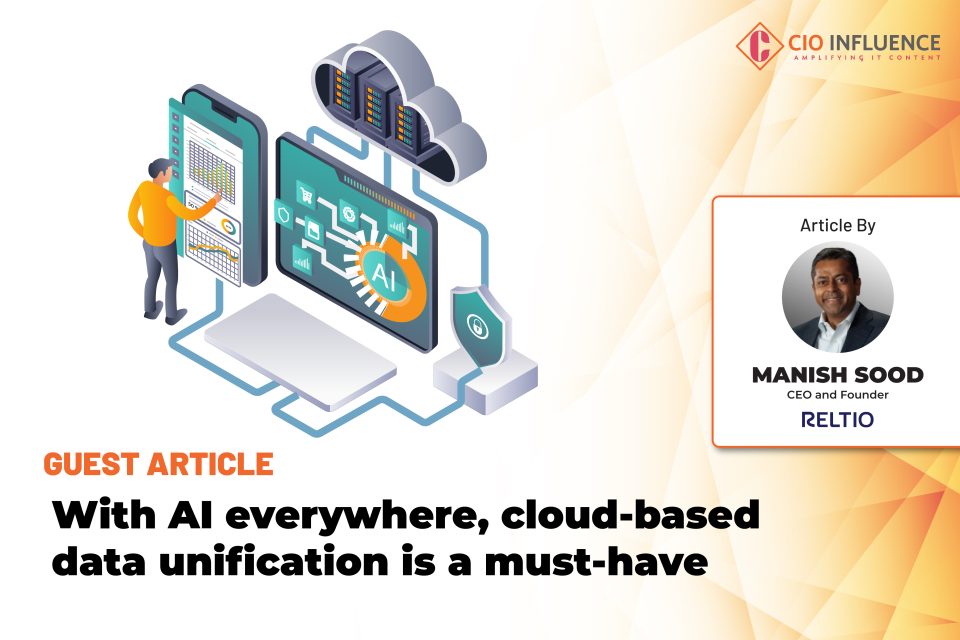The exponential growth of data feeding AI systems means it has never been more critical for data to be clean, unified, and easily manageable. This is especially true for highly regulated industries like finance, insurance, retail, and B2B.
And that’s why cloud-based data unification and management solutions are on the rise.
Fragmented data presents an interesting contradiction: most IT leaders are interested in implementing digital transformation initiatives by leveraging data but disconnected, siloed data prevents these initiatives from seeing the light of day. In fact, McKinsey estimates that 70% of digital transformation projects fail before completion. According to Salesforce, data is distributed across about 800 business applications at the average enterprise, but only 29% of this data is unified. Additionally, much of that data is confined to applications, meaning that data is often siloed as businesses become more specialized across applications and departments like ERP, HR, and CRM. With data scattered about like this, gaining a comprehensive view of the customer and optimizing processes becomes much more complex and can result in an inconsistent customer experience and disconnected sales. The solution is data unification.
Also Read: How CFOs and CIOs are Collaborating to Drive IT ROI
Going beyond traditional MDM to unify data
Cloud-based data unification and management solutions have emerged as a key strategy for solving the issues caused by siloed and fragmented data. These solutions transform data into trusted assets for operational and analytical use. Data unification and management solutions include a series of solutions and technologies, including cloud-based multi-domain master data management (MDM) and data products such as Customer 360, to help enterprises overcome the significant challenges created by data silos and fragmentation.
Data unification and management extend far beyond the traditional boundaries of MDM by offering a more holistic and integrated approach to handling enterprise data. Data unification encompasses a broader range of technologies and solutions that integrate data across all domains and systems in real-time. This approach not only breaks down silos but also ensures that data is interoperable, reusable, and accessible across the entire enterprise for operations and analytics uses. For data leaders, this means faster, more accurate decision-making, enhanced innovation, and the ability to deliver personalized customer experiences with confidence. Benefits include improved operational efficiency, stronger governance, and the agility to adapt to evolving business needs—all powered by a unified view of the enterprise’s most valuable asset: data.
Also Read: Top Misconceptions Around Data Operations and Breaking Down the Role of a VP of Data Ops
Data unification in practice
Companies should examine their data architecture carefully before implementing a comprehensive AI strategy. While AI and automation are crucial initiatives for all data and IT leaders, the data foundation must be set first. AI cannot solve the deeply ingrained problems of untrustworthy data.
With modern solutions incorporating data unification and management, data stewards can easily integrate data, manage increasing data workloads, adapt to changing standards, and harness API-first performance for real-time data availability with strong security and compliance measures. Unified and trusted data is critical for the success of AI and digital transformation initiatives, underscoring the importance of comprehensive data management. The future of data-driven processes and applications relies on unified data to fuel innovation and efficiency.
Also Read: The Dynamic Duo: How CMOs and CIOs Are Shaping the Future of Business
[To share your insights with us as part of editorial or sponsored content, please write to psen@itechseries.com]


